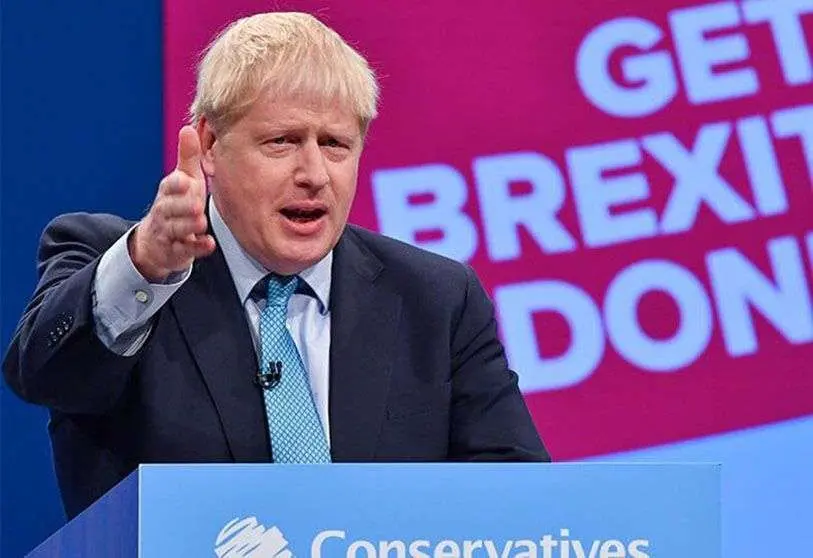Boris and the temptation to break the deck

This is a decisive phase for the agreement or break-up between the United Kingdom and the European Union, as they face the eighth and supposedly last round of negotiations to establish what their new relationship will be from next January 1. The head of the European negotiators, the Frenchman Michel Barnier, quietly slips that the British have reached the limit of their intransigence, suggesting that an ultimate decision should perhaps now be taken by the 27 heads of state or government to oppose or not as harshly as London does.
Attacked by a more than deficient management of the coronavirus pandemic, and confronted with a reborn Labour Party in the polls, Prime Minister Boris Johnson is seriously considering the possibility of effectively reaching December 31 without an agreement. He himself knows that nationalist drive and a discourse based on the theoretical recovery of sovereignty were the levers which brought him to power. Furthermore, he appears to recognise himself as an outstanding disciple of the US president, Donald Trump, particularly regarding the assertion of his own interests before and even above those of the rest of the world.
With these ideological pillars, it is not surprising that his negotiator with Brussels, David Frost, heated up the atmosphere even more this past weekend. Unwilling to give interviews, Frost has given the Mail on Sunday the exclusive of his mood as he approaches this latest round of negotiations with Brussels: "We are not going to be a client state" of the European Union, he says. “We are not going to compromise on the fundamentals of having control over our own laws. We are not going to accept provisions that give them control over our money or the way we can organise things here in the UK," he added.
Although until a negotiation is concluded nothing is final, quite a few chapters of agreement seem to have been outlined. But, the remaining fringes to be concluded can reduce everything that has been achieved to ashes. Fishing rights in the waters around the British Isles; state aid; social and environmental protection standards; and the mechanisms that would ensure the implementation of the agreement are the big issues. They all touch on the very heart of the EU, from fair and regulated competition to the internal market, including the parameters of the welfare state which, even if shaken by the economic crisis, still aspires to ensure that its citizens are not left helpless and subject to the jungle law of unregulated free competition.
In this interview David Frost assures Boris Johnson is not afraid of a lack of agreement, implying that if the United Kingdom does not achieve a treaty similar to the one the EU already has with Canada, both parties will come under the rules of the World Trade Organisation (WTO). This would result in the introduction of high customs duties and heavy border controls, in other words, more crisis ingredients to add to the current serious economic crisis.
There are those in the EU media who believe that Boris Johnson's wager, made explicit by negotiator David Frost, is trying to hide his own fragility, which stems from the economic crisis that the pandemic has aggravated in the United Kingdom, even more so than in the main EU countries. However, there is also considerable prevention with respect to some unpredictable movement at 10 Downing Street. The EU countries have already begun to realise that the UK's departure is not the end of the world, although it has certainly weakened the Union. A head-on collision, the consequence of a non-agreement, would aggravate the effects of the economic crisis, but it seems unlikely that the greatest devastation would be caused precisely by the EU-27. Despite his harshness, Johnson will have to think long and hard before breaking the deck.

